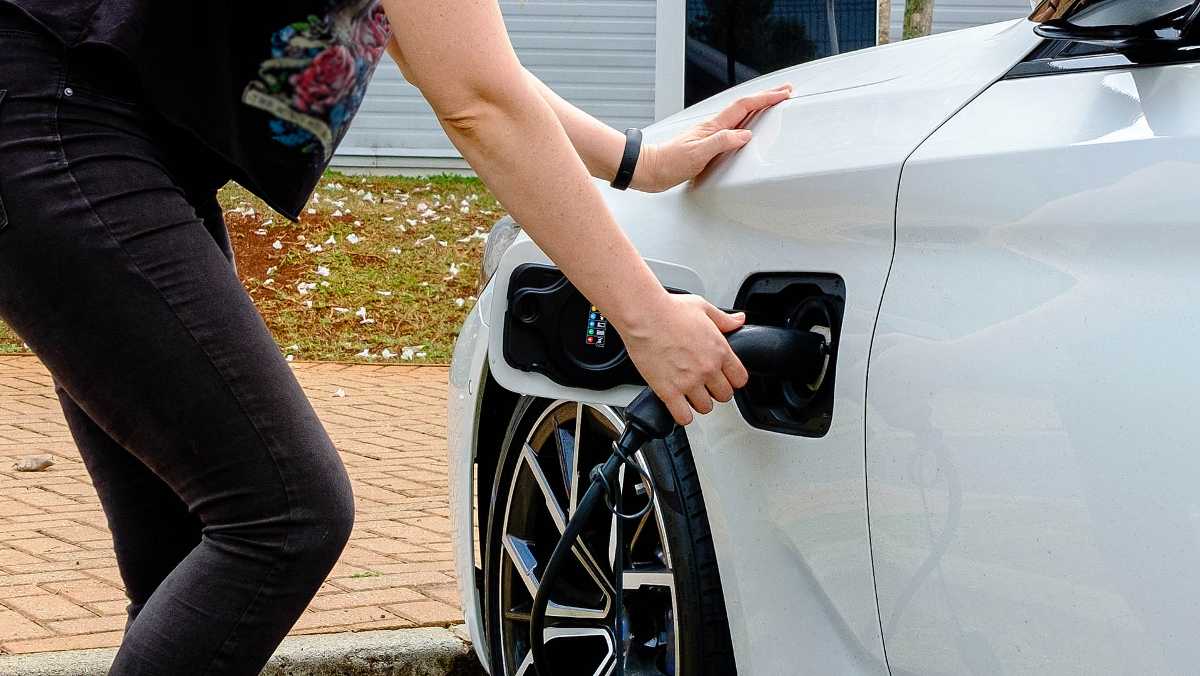Is it time to switch to an electric vehicle?

- Background
- Edited 6 January 2025
- 2 min
- Managing and growing
- Sustainability
Driving an electric vehicle is good for the environment, but is it good for your wallet? Tax schemes and the lower private use addition (bijtelling) make the transition to an EV seem attractive. But depending on your situation, putting off the purchase of an electric car may make more sense. In this article, you can find the pros and cons of switching now.
Why switch to an electric vehicle?
Switching to electric driving can make sense if you often drive in (future) zero-emission zones. And with the tax schemes available, you can save money.
Zero-emission zones
No more exhaust fumes from trucks or vans in the city: this is what zero-emission zones, or emission-free zones, are all about. 29 municipalities in the Netherlands are introducing such zones in 2025 or later. You will no longer be welcome there with your diesel or petrol-powered van or truck. To ensure that you have enough time to switch to other transport, there is the transitional scheme. Thanks to this scheme, some existing vans that run on diesel, petrol, or LPG will be allowed to enter the zero-emission zones for a little longer.
Marco van Eenennaam, EV expert at ANWB has the following warning for entrepreneurs: "If you are buying a new van next year, this is important information. If only to help estimate the residual value of a cheaper diesel van. No one who lives or works in and around cities with zero-emission zones will want to take it off your hands from 2025." So if you spend a lot of time driving in and around cities with these zones, it may make sense to switch to an electric vehicle.
Bpm for vans with CO2 emissions
As of 2025, you pay private vehicle and motorcycle tax (bpm) when buying a company van with CO2 . The amount of BPM you pay depends on the CO2 emissions of the delivery van. The higher the emissions, the more tax you pay. Electric vans and other vehicles with no harmful exhaust emissions will remain exempt from BPM.
Additional tax liability
If you also drive your fully electric commercial car privately, you benefit from a reduced private use addition of 17% in 2025, up to a maximum of €30,000 of the list price. Above that, you pay the full additional tax rate of 22%. This lower additional tax rate will remain in effect for the first 5 years from the time you put the car into service.
The government will be phasing out its private use addition scheme for electric vehicles over the next few years. Van Eenennaam: "Electric cars are getting cheaper and becoming more and more common, so the government cannot continue to offer financial incentives." From 2026 you will pay the full additional tax rate of 22%.
Why wait to go electric?
Although switching to an electric vehicle has its pros, there are also significant cons. Whether it is best to switch now or wait a little longer before buying an electric car depends on your situation.
Costs of electric cars
Currently, the prices of electric cars are higher than of comparable fuel models. "The latest electric vans are about 50% more expensive than comparable diesel versions. The generation before that was up to twice as expensive. There is still a gap, but it is getting smaller," Van Eenennaam acknowledges. Second-hand vehicles are cheaper, but can be difficult to find, “because the demand for used electric cars is currently much greater than the supply." If you do not want to or cannot buy an EV, leasing might be a viable option. The advantage of leasing a car is that you will not have to pay for repairs if the battery breaks, for example, because maintenance costs are included in the monthly price.
Still, buying an electric vehicle now can be a good investment: "With all the zero-emission zones coming up, the demand for electric vans is likely to increase, which means that your van will probably not depreciate too much. If you lease a vehicle, the lease company will benefit from that high residual value.”
Increasing range
Battery technology is developing rapidly, and as batteries are getting better and better, their maximum range is increasing. In 2024, the average range of an EV was 418 kilometres. By comparison, EVs had an average range of only 172 km in 2017. The longer you put off buying a new electric car, the farther you will be able to drive on a full battery.

